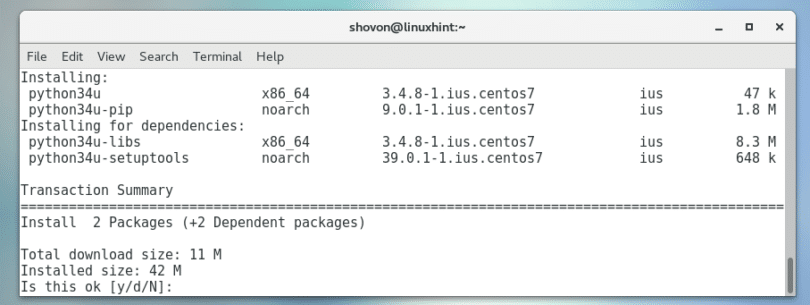
Not to mention being on your own for support. Have you ever considered the basic difference between package-managed and non-package-managed distributions?Īs soon as you move away from the basics and start doing source installs, it is you who will be responsible for maintaining the software, updating when security fixes are being released, recompiling affected packages, etc. However, I'd say you are the one this applies to. I think you are better off browsing PyPi (the cheese shop) than yum list. You can do a 'yum list "*python*" to get some Python module names, but you need to install them with your python2.7 interpreter because the named modules have specific versions for 2.6.2, 2.7.2, etc. Using Easy_install - Add modules from PyPi to Python It is easy to build up with the standard easy_install and pip (they are to Python what RPM is to RHEL/CentOS). You do end up with a barebones Python environment but that is fine. To get a basic 2.7.2 interpreter all you do is: The RPM Package Manager is one of several approaches to adding better tools to manage the use of the code tarballs may produce.īecause niether CentOS 5.x or 6.x use Python 2.7.2 there is no real reason to have to deal with RPM Manager at all. The aplications (such as Python) and libraries for CentOS, RHEL were all created with the Free Software Foundation's autoconf and libtool tools These tools generate the familiar *.tar.gz or *.tgz (compressed tar balls) you see all over the Internet. You would likely have a better chance of success starting on a CentOS-6 base, as it already has python-2.6.6-29.el6, or going to a recent Fedora that has 2.7 native. Note that there are a bunch of other python26-related packages:


Then your best bet is to start with the EPEL python26-2.6. and use it as a guide to attempt to build a non-interfering python27 package.


 0 kommentar(er)
0 kommentar(er)
